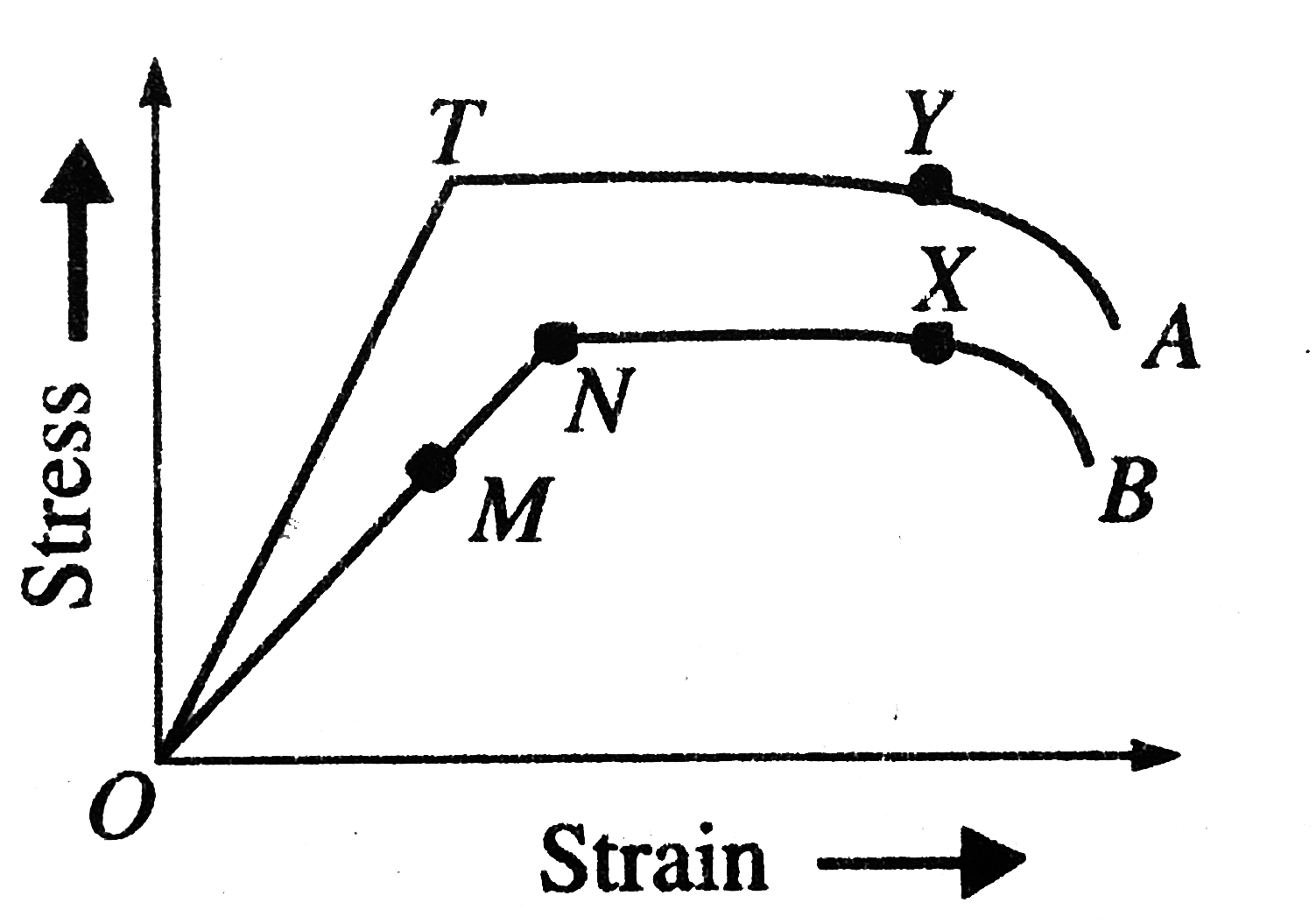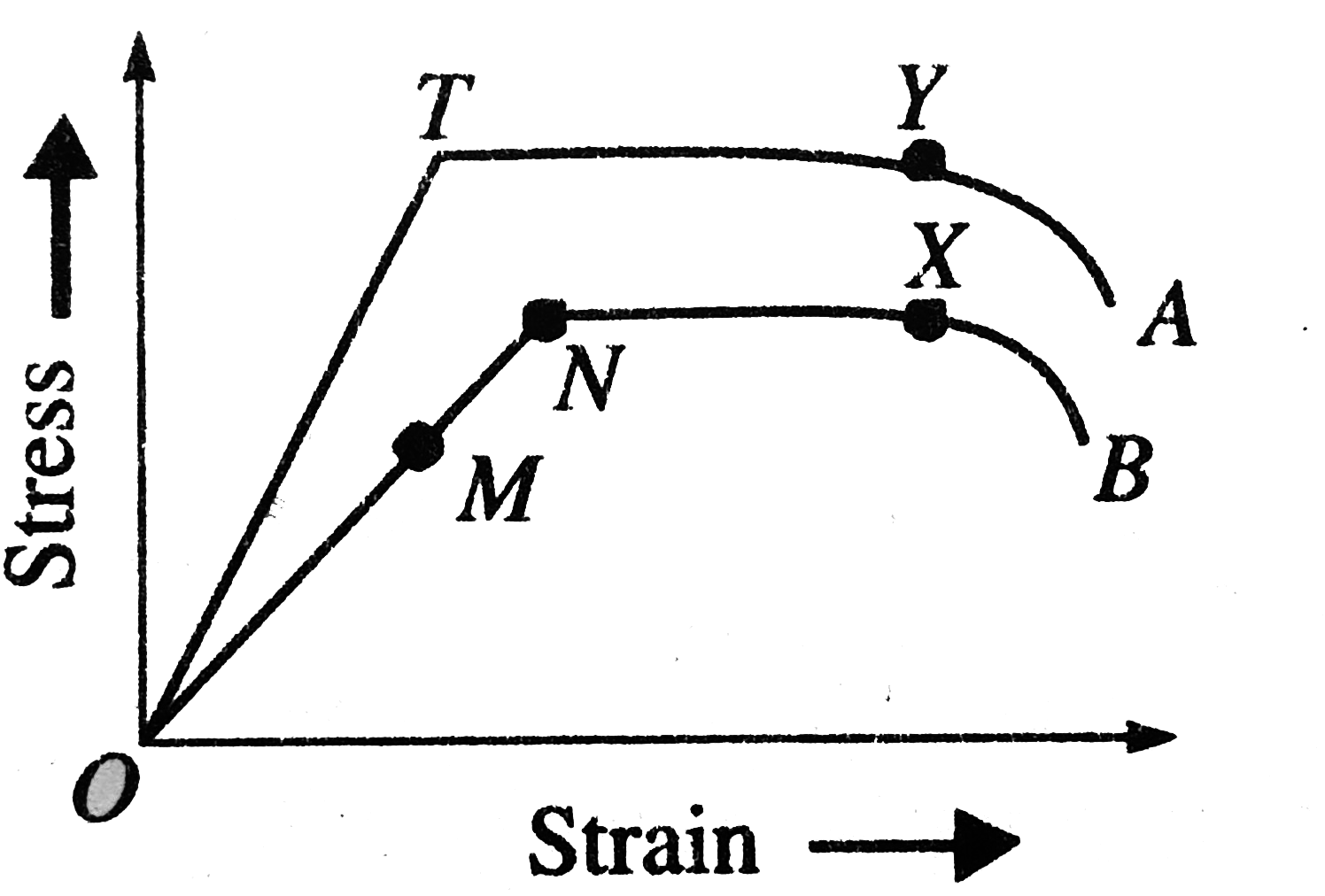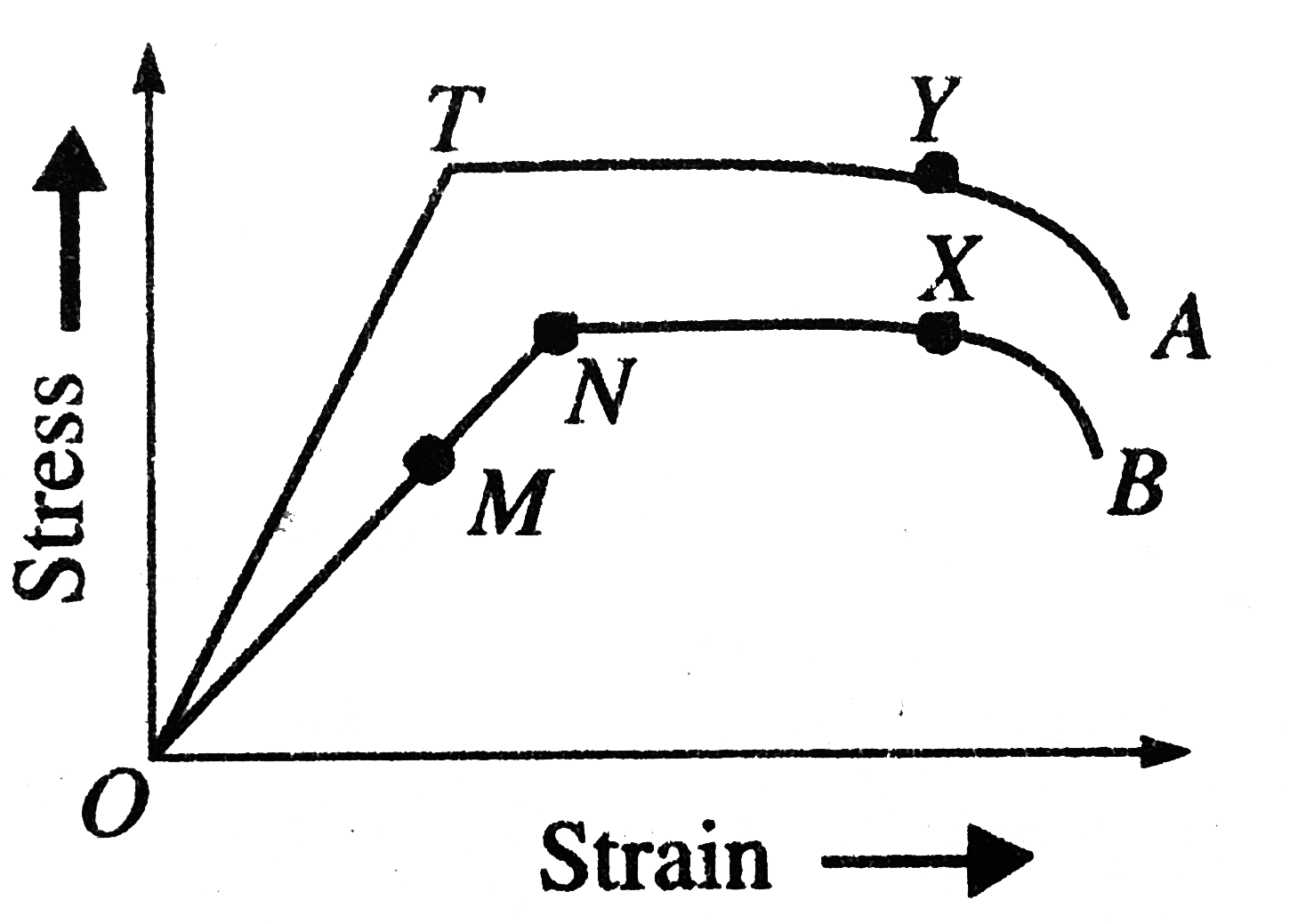Materials get deformed when force is applied. Some of them regain their status when the applied force is removed. They are termed as elastic. Those of which not regaining are called plastic. There may be delay in the regaining in some materials. They are said to have got elastic aftereffect, since they have gone beyond the elastic limit. Repeated application and removal of force leads to fatigueness in the material. Fatigued materials may break at any point time and so are avoided.
The stress strain graph for two materials A and B is shown in the following figure:

The time in which the two materials regain their original status is tA and tB related as tB=2tB. Then the material under elastic aftereffect (relatively) is
B
A
both A and B
neighter A nor B
The correct Answer is:A
Time to regain original status in B is greater than the time to regain original status in A. So relatively B is more fatigued than A. So a. is correct and the rest are incorrect. However, this answer can only be relative and never absolute.
Topper's Solved these Questions
- PROPERTIES OF SOLIDS AND FLUIDSBOOK - CENGAGE PHYSICS ENGLISHCHAPTER - PROPERTIES OF SOLIDS AND FLUIDSEXERCISE - Integer
6 Videos
- PROPERTIES OF SOLIDS AND FLUIDSBOOK - CENGAGE PHYSICS ENGLISHCHAPTER - PROPERTIES OF SOLIDS AND FLUIDSEXERCISE - Fill In The Blanks
1 Videos
- PROPERTIES OF SOLIDS AND FLUIDSBOOK - CENGAGE PHYSICS ENGLISHCHAPTER - PROPERTIES OF SOLIDS AND FLUIDSEXERCISE - Assertion- Reasoning
13 Videos
- NEWTON'S LAWS OF MOTION 2BOOK - CENGAGE PHYSICS ENGLISHCHAPTER - NEWTON'S LAWS OF MOTION 2EXERCISE - Integer type
1 Videos
- RIGID BODY DYNAMICS 1BOOK - CENGAGE PHYSICS ENGLISHCHAPTER - RIGID BODY DYNAMICS 1EXERCISE - Integer
11 Videos
Similar Questions
Materials get deformed when force is applied. Some of them regain their status when the applied force is removed. They are termed as elastic. Those of which not regaining are called plastic. There may be delay in the regaining in some materials. They are said to have got elastic aftereffect, since they have gone beyond the elastic limit. Repeated application and removal of force leads to fatigueness in the material. Fatigued materials may break at any point time and so are avoided.
The stress strain graph for two materials A and B is shown in the following figure:

If the intensity of A and B is EA and EB, respectively
View SolutionMaterials get deformed when force is applied. Some of them regain their status when the applied force is removed. They are termed as elastic. Those of which not regaining are called plastic. There may be delay in the regaining in some materials. They are said to have got elastic aftereffect, since they have gone beyond the elastic limit. Repeated application and removal of force leads to fatigueness in the material. Fatigued materials may break at any point time and so are avoided.
The stress strain graph for two materials A and B is shown in the following figure:

The strength of the material A and B is SA and SB, respectively, while the longevity of plastic behaviour is LA and LB. Then
View Solution
Knowledge Check
Solids which break above the elastic limit are called
AbrittleBductileCÂ malleableDelastic
Why gases have two elasticities?
View SolutionWhen a force is applied on an object and if the body moves in the direction of applied force, work is said to be done.
View SolutionWhat is elastic fatigue?
View SolutionElastic forces
View SolutionFind out the work done when a force of 30 N displaces a body through 8 m in the direction of the applied force.
View SolutionWhen force applied on an object causes it to moves in the direction of force
View SolutionOn mixing impurities, the elasticity of a material
View Solution
